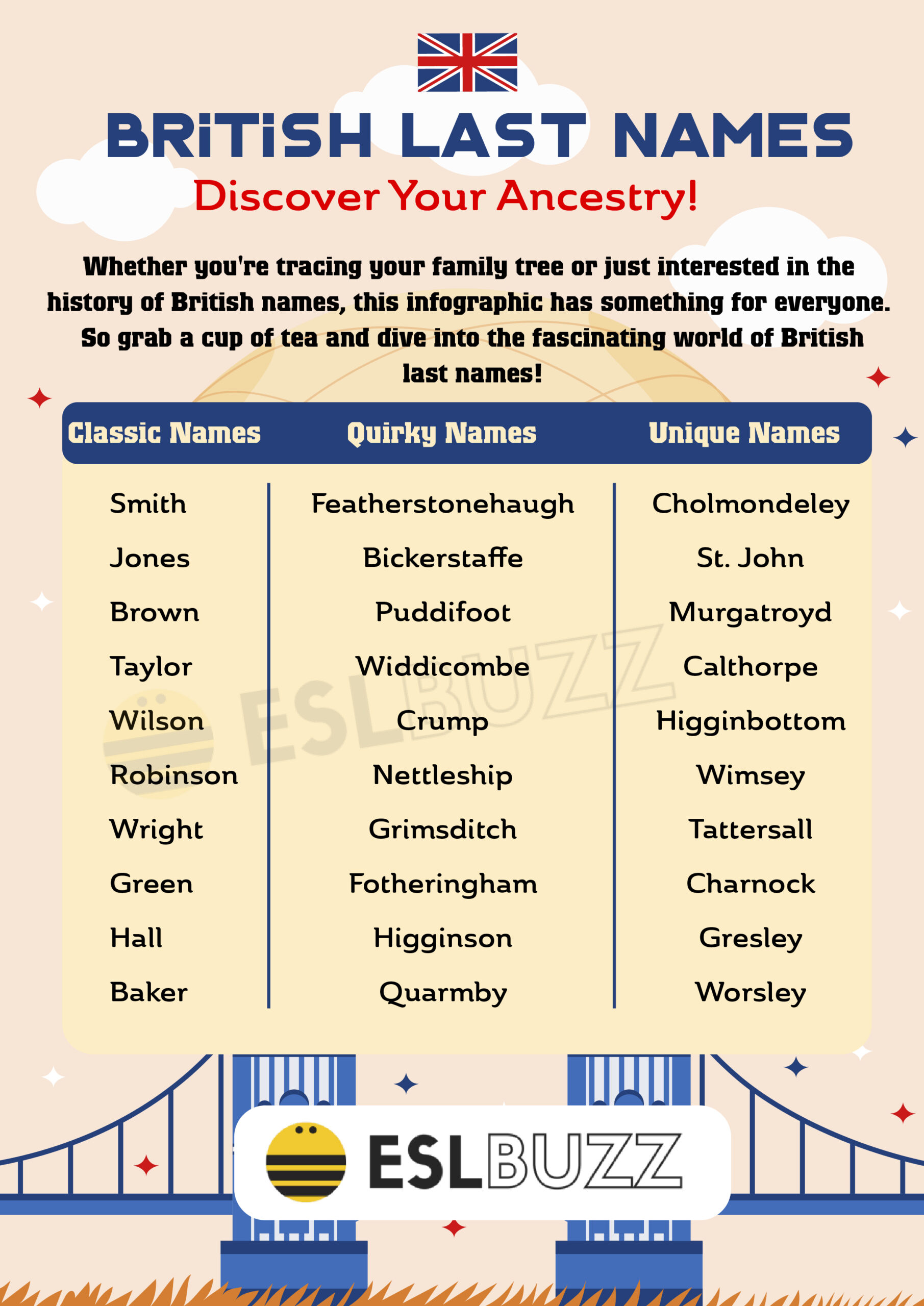Exploring Victorian Surnames: A Comprehensive Guide
Victorian surnames hold a significant place in genealogical research and historical studies. They reflect the cultural, social, and economic dynamics of the Victorian era. During this period, surnames evolved and adapted to the changing societal structures, leaving a lasting legacy that continues to intrigue historians and genealogists alike.
The Victorian era, spanning from 1837 to 1901, was a transformative period in British history. It was marked by industrialization, urbanization, and significant social changes. These transformations influenced the way people lived, worked, and interacted, and this is reflected in the surnames that emerged during this time.
Understanding Victorian surnames provides a unique window into the lives of people during the 19th century. From their origins to their meanings, these names offer valuable insights into the cultural and historical context of the Victorian era. Let’s delve deeper into this fascinating subject and explore what makes Victorian surnames so captivating.
Read also:Unlock The Power Of Rulz A Comprehensive Guide To Understanding And Mastering The Concept
Table of Contents
- Biography of the Victorian Era
- Origins of Victorian Surnames
- Types of Victorian Surnames
- Significance in Genealogy
- Cultural Heritage of Surnames
- Famous Victorian Surnames
- Tips for Researching Victorian Surnames
- Modern Usage of Victorian Surnames
- Useful Resources for Studying Surnames
- Conclusion
Biography of the Victorian Era
Historical Background
The Victorian era is named after Queen Victoria, who reigned from 1837 to 1901. This period was characterized by rapid industrial growth, scientific advancements, and cultural shifts. The British Empire expanded significantly during this time, leading to increased global influence and cultural exchange.
Victorian society was hierarchical, with distinct social classes. The aristocracy, middle class, and working class each played a role in shaping the era’s cultural landscape. Surnames during this time often reflected a person’s occupation, location, or family lineage, providing insight into their social status and identity.
Data and Statistics
According to historical records, the population of Britain increased dramatically during the Victorian era, reaching over 30 million by the end of the 19th century. This population growth contributed to the diversification of surnames, as new names emerged and existing ones evolved.
| Category | Details |
|---|---|
| Reign Period | 1837 - 1901 |
| Population Growth | Over 30 million by 1901 |
| Key Events | Industrial Revolution, Expansion of British Empire |
Origins of Victorian Surnames
Victorian surnames have diverse origins, often tied to geographical locations, occupations, or personal characteristics. These names were passed down through generations, forming an integral part of family identity.
- Patronymic Surnames: Derived from the father’s name, such as "Johnson" meaning "son of John."
- Occupational Surnames: Reflecting a person’s profession, like "Smith" for blacksmiths or "Carpenter" for woodworkers.
- Topographical Surnames: Indicating a place of origin, such as "Hill" or "Wood."
Types of Victorian Surnames
Common Surnames
Some of the most common Victorian surnames include "Smith," "Jones," and "Williams." These names were prevalent due to their simplicity and widespread usage across various social classes.
Rare and Unique Surnames
In contrast, rare surnames like "Featherstone" or "Peregrine" stand out for their distinctiveness. These names often have fascinating origins and can be traced back to specific regions or families.
Read also:Julian Mcmahon A Comprehensive Exploration Of The Renowned Actors Life And Career
Significance in Genealogy
Victorian surnames play a crucial role in genealogical research. They serve as a link to the past, helping individuals trace their family lineage and connect with their ancestors. By studying these names, researchers can uncover valuable information about family history and heritage.
Cultural Heritage of Surnames
The cultural heritage of Victorian surnames is rich and varied. They reflect the traditions, values, and customs of the era, offering a glimpse into the lives of people during that time. From regional dialects to religious influences, these names encapsulate the cultural tapestry of Victorian Britain.
Famous Victorian Surnames
Several famous Victorian surnames are associated with notable figures of the era. For example, "Darwin" is linked to Charles Darwin, the renowned naturalist, while "Dickens" is synonymous with Charles Dickens, the celebrated author.
Tips for Researching Victorian Surnames
Researching Victorian surnames requires a systematic approach. Here are some tips to help you get started:
- Consult historical records and archives for accurate information.
- Utilize genealogical databases and online resources.
- Engage with local historical societies for additional insights.
Modern Usage of Victorian Surnames
While many Victorian surnames remain in use today, some have evolved or fallen out of favor. Modern naming trends have introduced new variations and combinations, but the legacy of Victorian surnames persists. They continue to inspire contemporary names and serve as a reminder of their historical significance.
Useful Resources for Studying Surnames
For those interested in studying Victorian surnames, several resources are available:
- Public Records Office: Offers access to historical documents and census records.
- National Archives: Provides comprehensive resources for genealogical research.
- FamilySearch: A free online platform for tracing family history.
Conclusion
Victorian surnames offer a fascinating glimpse into the cultural and historical context of the 19th century. By exploring their origins, types, and significance, we gain a deeper understanding of the people and society of the Victorian era. This knowledge not only enriches our genealogical research but also connects us to our shared heritage.
We encourage you to delve further into the world of Victorian surnames and discover the stories they hold. Share your findings with others, engage in discussions, and continue exploring the rich history of this captivating subject. For more insights, explore our other articles on genealogy and historical research.

